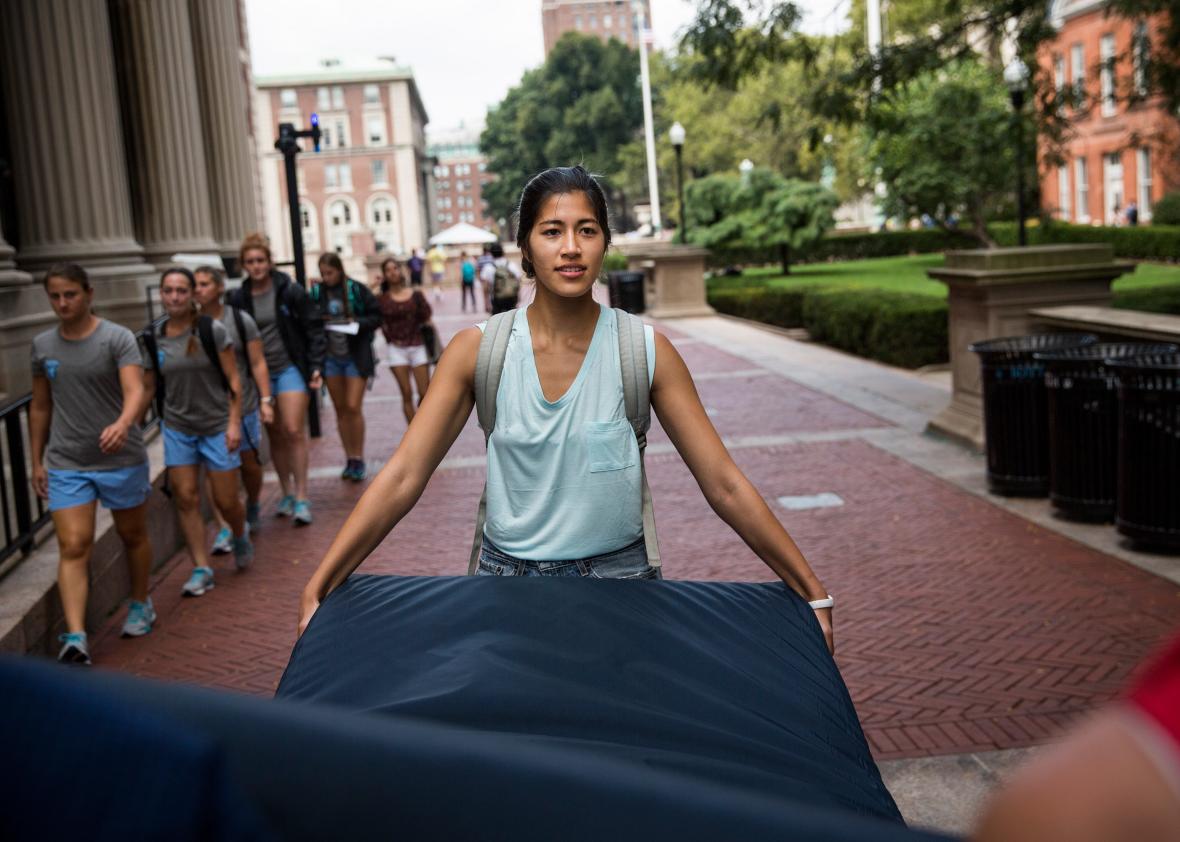
The feminization of the justice system has continued unabated, with the nominally Conservative British government of Theresa May pledging to ban courtroom cross-examinations of alleged rape victims. The practice of prerecording rape complainant evidence is already in place for children, which poses the irony that women, who make up the vast majority of rape accusers, will be treated like children are.
UK Justice Secretary Liz Truss believes that the plan “will not reduce the right to a fair trial, but will ensure victims of these crimes are protected.” This shows a shocking ignorance of the nature of the British system and history of law. Unlike on the European continent, England and Wales’ court procedures are adversarial. Unless changes to courtroom procedure involve something neutral like painting the walls beige instead of white, an advantage given to one side, in this instance the prosecution and obliquely the accuser, naturally disadvantages the other (here, the accused).
Ideas about a more impartial and even-handed conception of justice in Britain date back to the Magna Carta and the noble agitations that prompted it. Over the centuries, this evolved into more ironclad protections against judicial errors in the form of carefully selected juries and the testing of evidence in open court. Theresa May and Liz Truss’ efforts in the Prisons and Courts Bill represent an egregious dismantling of this time-honored legacy. Relative to its size, Britain has often been the most respected country in the world when it comes to legal matters. A direct outcome of this stability and fairness is the continued flourishing of its economy and society over the course of the 20th century. This reputation as a bastion of common sense, though under attack for some time, is presently being strangled like never before.
To appease a few SJWs, May and Truss are undermining the right to a fair trial. There is no guarantee that video evidence will not be tampered with or that multiple takes will not be done, giving the “best” one to the court for viewing by the judge and jury. Compare this to the situation of the accused, who cannot ask for a “redo” of his statement to police, except if he wants to be branded as a liar who changes his story. The accused has a lot more to lose from a trial, yet will be expected to front court with the public, if not the entire country knowing his name and every detail of his past being trawled over. By contrast, rape accusers in the United Kingdom are granted perpetual anonymity.
A perfect storm

Yes, this is the woman who worked to classify men approaching women as “hate criminals.”
In all three major aspects of the criminal legal system, investigation, the laying of charges, and prosecution in a court, the standards for evaluating men as “rapists” have been deleteriously lowered in Britain. Readers will remember how Nottingham Police, in a move being followed by other UK police forces, decided to regard men approaching women as perpetrators of “hate crimes.” This is despite proponents freely admitting that such behavior was not actually criminal in many ways (and nor should it be).
Likewise, the Crown Prosecution Service (CPS) pursued innocent man Mark Pearson for an eternity over a “rape” allegation by Game of Thrones actress Souad Faress. CCTV footage was deliberately slowed down by the CPS to make it look like Pearson could have (rather than did) digitally assault Faress as it would have otherwise been impossible. After all, Liz Truss and CPS head Alison Saunders have publicly made it their mission to increase the number of rape convictions, rather than seeking sound and properly proven rape convictions.
Rape isn’t the only traumatic crime

Feminists falsely portray court cross-examinations as an abuse towards (female) accusers, when, in fact, there is usually next to no hard evidence to support allegations of rape.
Like me, you may have family members who have gone through terrible criminal ordeals. One of my closest family members was caught up in an armed robbery and had a high-powered weapon aimed right at her face. In addition, an acquaintance of mine was so badly beaten in an unprovoked attack that he went through months of excruciating physical rehabilitation, to the point where simple functions like eating and walking had to be thoroughly remastered. Neither he nor my family member were spared cross-examination in court.
Consequently, the move to ban courtroom cross-examinations of rape complainants reeks of unwarranted exceptionalism. Time and again, the alleged or plain obvious suffering of other victims of crime is minimized in favor of the narrative that rape claims are the only cases ever deserving of special consideration. Did someone carve up your father with a knife and kill him in front of you after both of you were taken hostage? Well, you have to give evidence in court. Were you attacked by a mob, causing you to spend five weeks in a coma? If so, chances are you’ll have to be cross-examined once you’re physically able to be, irrespective of any lingering mental and emotional trauma you will have.
More importantly, the two violent crime examples I just mentioned are almost universally accompanied by a plethora of hard evidence, as opposed to the invariably flimsy and vague corroboration we see with allegations of rape. Because of the huge delay in many rape accusers coming forward, the need for cross-examination is even more pronounced than for most other serious alleged crimes.
So many things could go wrong

Exceptions for rape accusers are being pushed by people like this.
If courtroom cross-examinations are supposedly too traumatic, what’s to stop accusers and feminists from saying prerecorded cross-examinations are as well? Remember, we live in the political and social climate of “listen and believe,” where questioning a woman’s story of rape is equated with misogyny. What’s more is that the public focus has been entirely on the efficacy of courtroom cross-examinations versus prerecorded evidence, not what robust form the prerecorded evidence-gathering should be taking and how open to revision it will be. And, of course, anything is up for revision in the UK, including due process, as it lacks a powerful constitution and Parliament at Westminster has what is called parliamentary supremacy.
Sadly, the atmosphere of man-hating in the legal system is going to roll on well into the future. The range of false rape stories out there, from Emma Sulkowicz’s lies to the Duke lacrosse case to Ched Evans’ cock carousel accuser, has led to SJWs and others openly trying to subvert due process to secure Stalinist-style conviction quotas.
So, the million-dollar question is this: are you currently protecting yourself from false accusations? If not, you need to be.
Read More: British Soccer Star Ched Evans Found Not Guilty Of Rape After Years Of Abuse From Feminists
Leave a Reply